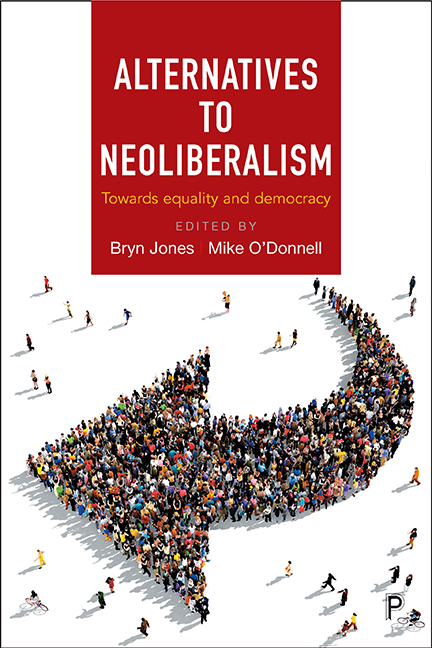Book contents
- Frontmatter
- Dedication
- Contents
- List of figures, tables and boxes
- List of abbreviations
- Notes on contributors
- Acknowledgements
- Foreword
- Editors’ preface
- Introduction: The open-market society and its opponents: an overview
- Part One Alternative paradigms and perspectives
- Part Two Reform within economic and governance restraints: pushing the boundaries
- Part Three Economic and political democracy: restoring the market-civil society balance
- Conclusion: A Brexit from neoliberalism?
- Index
nine - Avoiding ‘back to the future’ policies by reforming the ‘foundational economy’
Published online by Cambridge University Press: 05 April 2022
- Frontmatter
- Dedication
- Contents
- List of figures, tables and boxes
- List of abbreviations
- Notes on contributors
- Acknowledgements
- Foreword
- Editors’ preface
- Introduction: The open-market society and its opponents: an overview
- Part One Alternative paradigms and perspectives
- Part Two Reform within economic and governance restraints: pushing the boundaries
- Part Three Economic and political democracy: restoring the market-civil society balance
- Conclusion: A Brexit from neoliberalism?
- Index
Summary
The most striking feature of the political economy of Western Europe since the great financial crisis is, simply, the continuing ascendancy of neoliberal policies, practices and priorities. The term neoliberalism is more convenient shorthand than precise concept but, in this case, it serves to identify an important continuity. The doctrine of the superiority of market intelligence, and the cult of light touch regulation gave us the crisis, and we might have expected the cataclysm of 2007‒9 to have damaged it irreparably. On the contrary: in the Eurozone we have had nearly a decade more of austerity pursued in the name of the neoliberal project of creating a single currency within a unified market; and in the United Kingdom the general election result of May 2015, in returning a majority Conservative government, intensified the austerity policies pursued since 2010 in the name of shrinking the state.
Faced with the resilience of neoliberalism its opponents have been like rabbits before stoats – paralysed into immobility and ineffectiveness. In the nations of the Eurozone subjected to the most severe neoliberal policies – Ireland, Portugal, Greece – opposition has been either weak or, as in the case of Greece, brutally pushed aside. In the United Kingdom the Labour opposition has been deeply divided. On the one hand, the parliamentary inheritors of New Labour defend post-1997 Blairite achievements, accept the austerity implications of the neoliberal case and wish only to moderate its most savage consequences. Against this, a resurgent ‘retro left’ in the country (by which we mean a left still wedded to policies pursued before the neoliberal revolution) hankers after reversal of the post-1979 changes and defends the forms of an earlier settlement, including the centrally controlled, hierarchical nationalised corporation ‒ something that, of course, suits the interests of its allies at the head of centrally organised trade unions. At the time of writing, in the immediate aftermath of Jeremy Corbyn's unexpected victory in the Labour leadership campaign in 2015, it still remains uncertain how these internal divisions in the party will be resolved.
Nevertheless, a striking common assumption unites these very different visions of economic life. It might be summarised as the assumption of a mono economy – an image of economic life reduced to one set of relations summarised in a single set of whole system indicators, like the rate of growth in GDP.
- Type
- Chapter
- Information
- Alternatives to NeoliberalismTowards Equality and Democracy, pp. 175 - 192Publisher: Bristol University PressPrint publication year: 2017



